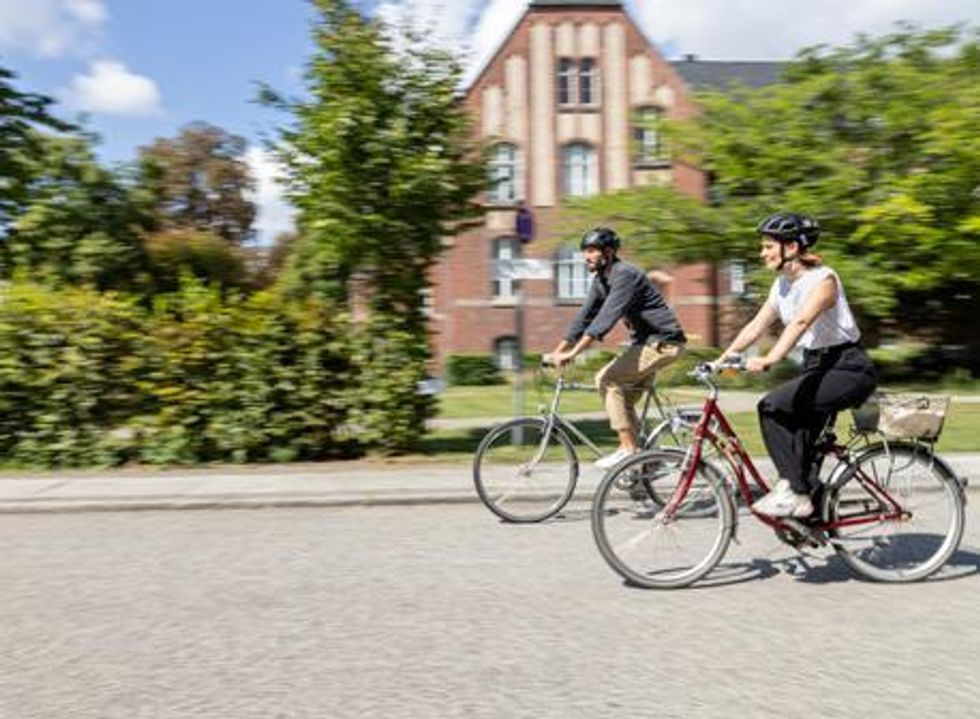How We Can Return to Normal Life in the COVID-19 Era

A crowded baseball stadium is the epitome of "getting back to normal."
I was asked recently when life might return to normal. The question is simple but the answer is complex, with many knowns, lots of known unknowns, and some unknown unknowns. But I'll give it my best shot.
To get the fatality rate down to flu-like levels would require that we cut Covid-19 fatalities down by a factor of 5.
Since I'm human (and thus want my life back), I might be biased toward optimism.
Here's one way to think about it: Is there another infection that causes sickness and death at levels that we tolerate? The answer, of course, is 'yes': influenza.
According to the Centers for Disease Control, from 2010 to 2019, an average of 30 million Americans had the flu each year, leading to an annual average of 37,000 deaths. This works out to an infection-fatality rate, or IFR, of 0.12 percent. We've tolerated that level of illness death from influenza for a century.
Before going on, let's get one thing out of the way: Back in March, Covid-19 wasn't, as some maintained, "like the flu," and it still isn't. Since then, the U.S. has had 3.9 million confirmed Covid-19 cases and 140,000 deaths, for an IFR of 3.6 percent. Taking all the cases — including asymptomatic patients and those with minimal symptoms who were never tested for Covid-19 — into account, the real IFR is probably 0.6 percent, or roughly 5 times that of the flu.
Nonetheless, even a partly effective vaccine, combined with moderately effective medications, could bring Covid-19 numbers down to a tolerable, flu-like, threshold. It's a goal that seems within our reach.
Chronic mask-wearing and physical distancing are not my idea of normal, nor, I would venture to guess, would most other Americans consider these desirable states in which to live. We need both now to achieve some semblance of normalcy, but they're decidedly not normal life. My notion of normal: daily life with no or minimal mask wearing, open restaurants and bars, ballparks with fans, and theaters with audiences.
My projection for when we might get there: perhaps a year from now.
To get the fatality rate down to flu-like levels would require that we cut Covid-19 fatalities down by a factor of 5, via some combination of fewer symptomatic cases and a lower chance that a symptomatic patient will go on to die. How might that happen?
First, we have to make some impact on young people – getting them to follow the public health directives at higher rates than they are currently. The main reason we need to push younger people to stay safe is that they can spread Covid-19 to vulnerable people (those who are older, with underlying health problems). But, once the most vulnerable are protected (through the deployment of some combination of effective medications and a vaccine), the fact that some young people aren't acting safely – or maybe won't take a vaccine themselves – wouldn't cause so much concern. The key is whether the people at highest risk for bad outcomes are protected.
Then there's the vaccine. The first principle: We don't need a 100 percent-effective vaccine injected into 320 million deltoid muscles (in the U.S. alone). Thank God, since it's fanciful to believe that we can have a vaccine that's 100 percent effective, universally available by next summer, and that each and every American agrees to be vaccinated.
How are we doing in our vaccine journey? We've been having some banner days lately, with recent optimistic reports from several of the vaccine companies. In one report, the leading candidate vaccine, the one effort being led by Oxford University, led to both antibodies and a cellular immune response, a very helpful belt-and-suspenders approach that increases the probability of long-lasting immunity. This good news comes on the heels of the positive news regarding the American vaccine being made by Moderna earlier in July.
While every article about vaccines sounds the obligatory cautionary notes, to date we've checked every box on the path to a safe and effective vaccine. We might not get there, but most experts are now predicting an FDA-approvable vaccine (more than 50 percent effective with no show-stopping side effects) by early 2021.
It is true that we don't know how long immunity will last, but that can be a problem to solve later. In this area, time is our friend. If we can get to an effective vaccine that lasts for a year or two, over time we should be able to discover strategies (more vaccine boosters, new and better medications) to address the possibility of waning immunity.
All things considered, I'm going to put my nickel down on the following optimistic scenario: we'll have one, and likely several, vaccines that have been proven to be more than 50 percent effective and safe by January, 2021.
If only that were the finish line.
Once we vaccinate a large fraction of high-risk patients, having a moderate number of unvaccinated people running around won't pose as much threat.
The investments in manufacturing and distribution should pay off, but it's still inconceivable that we'll be able to get vaccines to 300 million people in three to six months. For the 2009 Swine Flu, we managed to vaccinate about 1 in 4 Americans over six months.
So we'll need to prioritize. First in line will likely be the 55 million Americans over 65, and the six to eight million patient-facing healthcare workers. (How to sort priorities among people under 65 with "chronic diseases" will be a toughie.) Vaccinating 80-100 million vulnerable people, plus clinicians, might be achievable by mid-21.
If we can protect vulnerable people with an effective vaccine (with the less vulnerable waiting their turn over a subsequent 6-12 month period), that may be enough to do the trick. (Of course, vulnerable people may also be least likely to develop immunity in response to a vaccine. That could be an Achilles' heel – time will tell.)
Why might that be enough? Once we vaccinate a large fraction of high-risk patients, having a moderate number of unvaccinated people running around won't pose as much threat. Since they're at lower risk, they have a lower chance of getting sick and dying than those who received the vaccine first.
We're likely to have better meds by then, too. Since March, we've discovered two moderately effective medications for Covid-19 — remdesivir and dexamethasone. It seems likely that we'll find others by next summer, perhaps even a treatment that prevents patients from getting ill in the first place. There are many such therapies, ranging from zinc to convalescent plasma, currently being studied.
Moreover, we know that hospitals that are not overrun with Covid-19 have lower mortality rates. If we've gotten a fairly effective vaccine into most high-risk people, the hospitals are unlikely to be overwhelmed – another factor that may help lower the mortality rate to flu-like levels.
All of these factors – vaccination of most vulnerable people, one or two additional effective medications, hospitals and ICU's that aren't overwhelmed – could easily combine to bring the toll of Covid-19 down to something that resembles that of the flu. Then, we should be able to return to normal life.
Whatever the reason, if enough people refuse the vaccine, all bets are off.
What do I worry about? There's the growing anti-vaxxer movement, for one. On top of that, it seems that many Americans worry that a vaccine discovered in record speed won't be safe, or that the FDA approval process will have been corrupted by political influences. Whatever the reason, if enough people refuse the vaccine, all bets are off.
Assuming only high-risk people do get vaccinated, there will still be cases of Covid-19, maybe even mini-outbreaks, well into 2021 and likely 2022. Obviously, that's not ideal, and we should hope for a vaccine that results in the complete eradication of Covid-19. But the point is that, even with flu-like levels of illness and death, we should still be able to achieve "normal."
Hope is not a strategy, as the saying goes. But it is hope, which is more than we've had for a while.
Some hospitals are pioneers in ditching plastic, turning green
In the U.S., hospitals generate an estimated 6,000 tons of waste per day. A few clinics are leading the way in transitioning to clean energy sources.
This is part 2 of a three part series on a new generation of doctors leading the charge to make the health care industry more sustainable - for the benefit of their patients and the planet. Read part 1 here and part 3 here.
After graduating from her studies as an engineer, Nora Stroetzel ticked off the top item on her bucket list and traveled the world for a year. She loved remote places like the Indonesian rain forest she reached only by hiking for several days on foot, mountain villages in the Himalayas, and diving at reefs that were only accessible by local fishing boats.
“But no matter how far from civilization I ventured, one thing was already there: plastic,” Stroetzel says. “Plastic that would stay there for centuries, on 12,000 foot peaks and on beaches several hundred miles from the nearest city.” She saw “wild orangutans that could be lured by rustling plastic and hermit crabs that used plastic lids as dwellings instead of shells.”
While traveling she started volunteering for beach cleanups and helped build a recycling station in Indonesia. But the pivotal moment for her came after she returned to her hometown Kiel in Germany. “At the dentist, they gave me a plastic cup to rinse my mouth. I used it for maybe ten seconds before it was tossed out,” Stroetzel says. “That made me really angry.”
She decided to research alternatives for plastic in the medical sector and learned that cups could be reused and easily disinfected. All dentists routinely disinfect their tools anyway and, Stroetzel reasoned, it wouldn’t be too hard to extend that practice to cups.
It's a good example for how often plastic is used unnecessarily in medical practice, she says. The health care sector is the fifth biggest source of pollution and trash in industrialized countries. In the U.S., hospitals generate an estimated 6,000 tons of waste per day, including an average of 400 grams of plastic per patient per day, and this sector produces 8.5 percent of greenhouse gas emissions nationwide.
“Sustainable alternatives exist,” Stroetzel says, “but you have to painstakingly look for them; they are often not offered by the big manufacturers, and all of this takes way too much time [that] medical staff simply does not have during their hectic days.”
When Stroetzel spoke with medical staff in Germany, she found they were often frustrated by all of this waste, especially as they took care to avoid single-use plastic at home. Doctors in other countries share this frustration. In a recent poll, nine out of ten doctors in Germany said they’re aware of the urgency to find sustainable solutions in the health industry but don’t know how to achieve this goal.
After a year of researching more sustainable alternatives, Stroetzel founded a social enterprise startup called POP, short for Practice Without Plastic, together with IT expert Nicolai Niethe, to offer well-researched solutions. “Sustainable alternatives exist,” she says, “but you have to painstakingly look for them; they are often not offered by the big manufacturers, and all of this takes way too much time [that] medical staff simply does not have during their hectic days.”
In addition to reusable dentist cups, other good options for the heath care sector include washable N95 face masks and gloves made from nitrile, which waste less water and energy in their production. But Stroetzel admits that truly making a medical facility more sustainable is a complex task. “This includes negotiating with manufacturers who often package medical materials in double and triple layers of extra plastic.”
While initiatives such as Stroetzel’s provide much needed information, other experts reason that a wholesale rethinking of healthcare is needed. Voluntary action won’t be enough, and government should set the right example. Kari Nadeau, a Stanford physician who has spent 30 years researching the effects of environmental pollution on the immune system, and Kenneth Kizer, the former undersecretary for health in the U.S. Department of Veterans Affairs, wrote in JAMA last year that the medical industry and federal agencies that provide health care should be required to measure and make public their carbon footprints. “Government health systems do not disclose these data (and very rarely do private health care organizations), unlike more than 90% of the Standard & Poor’s top 500 companies and many nongovernment entities," they explained. "This could constitute a substantial step toward better equipping health professionals to confront climate change and other planetary health problems.”
Compared to the U.K., the U.S. healthcare industry lags behind in terms of measuring and managing its carbon footprint, and hospitals are the second highest energy user of any sector in the U.S.
Kizer and Nadeau look to the U.K. National Health Service (NHS), which created a Sustainable Development Unit in 2008 and began that year to conduct assessments of the NHS’s carbon footprint. The NHS also identified its biggest culprits: Of the 2019 footprint, with emissions totaling 25 megatons of carbon dioxide equivalent, 62 percent came from the supply chain, 24 percent from the direct delivery of care, 10 percent from staff commute and patient and visitor travel, and 4 percent from private health and care services commissioned by the NHS. From 1990 to 2019, the NHS has reduced its emission of carbon dioxide equivalents by 26 percent, mostly due to the switch to renewable energy for heat and power. Meanwhile, the NHS has encouraged health clinics in the U.K. to install wind generators or photovoltaics that convert light to electricity -- relatively quick ways to decarbonize buildings in the health sector.
Compared to the U.K., the U.S. healthcare industry lags behind in terms of measuring and managing its carbon footprint, and hospitals are the second highest energy user of any sector in the U.S. “We are already seeing patients with symptoms from climate change, such as worsened respiratory symptoms from increased wildfires and poor air quality in California,” write Thomas B. Newman, a pediatrist at the University of California, San Francisco, and UCSF clinical research coordinator Daisy Valdivieso. “Because of the enormous health threat posed by climate change, health professionals should mobilize support for climate mitigation and adaptation efforts.” They believe “the most direct place to start is to approach the low-lying fruit: reducing healthcare waste and overuse.”
In addition to resulting in waste, the plastic in hospitals ultimately harms patients, who may be even more vulnerable to the effects due to their health conditions. Microplastics have been detected in most humans, and on average, a human ingests five grams of microplastic per week. Newman and Valdivieso refer to the American Board of Internal Medicine's Choosing Wisely program as one of many initiatives that identify and publicize options for “safely doing less” as a strategy to reduce unnecessary healthcare practices, and in turn, reduce cost, resource use, and ultimately reduce medical harm.
A few U.S. clinics are pioneers in transitioning to clean energy sources. In Wisconsin, the nonprofit Gundersen Health network became the first hospital to cut its reliance on petroleum by switching to locally produced green energy in 2015, and it saved $1.2 million per year in the process. Kaiser Permanente eliminated its 800,000 ton carbon footprint through energy efficiency and purchasing carbon offsets, reaching a balance between carbon emissions and removing carbon from the atmosphere in 2020, the first U.S. health system to do so.
Cleveland Clinic has pledged to join Kaiser in becoming carbon neutral by 2027. Realizing that 80 percent of its 2008 carbon emissions came from electricity consumption, the Clinic started switching to renewable energy and installing solar panels, and it has invested in researching recyclable products and packaging. The Clinic’s sustainability report outlines several strategies for producing less waste, such as reusing cases for sterilizing instruments, cutting back on materials that can’t be recycled, and putting pressure on vendors to reduce product packaging.
The Charité Berlin, Europe’s biggest university hospital, has also announced its goal to become carbon neutral. Its sustainability managers have begun to identify the biggest carbon culprits in its operations. “We’ve already reduced CO2 emissions by 21 percent since 2016,” says Simon Batt-Nauerz, the director of infrastructure and sustainability.
The hospital still emits 100,000 tons of CO2 every year, as much as a city with 10,000 residents, but it’s making progress through ride share and bicycle programs for its staff of 20,000 employees, who can get their bikes repaired for free in one of the Charité-operated bike workshops. Another program targets doctors’ and nurses’ scrubs, which cause more than 200 tons of CO2 during manufacturing and cleaning. The staff is currently testing lighter, more sustainable scrubs made from recycled cellulose that is grown regionally and requires 80 percent less land use and 30 percent less water.

The Charité hospital in Berlin still emits 100,000 tons of CO2 every year, but it’s making progress through ride share and bicycle programs for its staff of 20,000 employees.
Wiebke Peitz | Specific to Charité
Anesthesiologist Susanne Koch spearheads sustainability efforts in anesthesiology at the Charité. She says that up to a third of hospital waste comes from surgery rooms. To reduce medical waste, she recommends what she calls the 5 Rs: Reduce, Reuse, Recycle, Rethink, Research. “In medicine, people don’t question the use of plastic because of safety concerns,” she says. “Nobody wants to be sued because something is reused. However, it is possible to reduce plastic and other materials safely.”
For instance, she says, typical surgery kits are single-use and contain more supplies than are actually needed, and the entire kit is routinely thrown out after the surgery. “Up to 20 percent of materials in a surgery room aren’t used but will be discarded,” Koch says. One solution could be smaller kits, she explains, and another would be to recycle the plastic. Another example is breathing tubes. “When they became scarce during the pandemic, studies showed that they can be used seven days instead of 24 hours without increased bacteria load when we change the filters regularly,” Koch says, and wonders, “What else can we reuse?”
In the Netherlands, TU Delft researchers Tim Horeman and Bart van Straten designed a method to melt down the blue polypropylene wrapping paper that keeps medical instruments sterile, so that the material can be turned it into new medical devices. Currently, more than a million kilos of the blue paper are used in Dutch hospitals every year. A growing number of Dutch hospitals are adopting this approach.
Another common practice that’s ripe for improvement is the use of a certain plastic, called PVC, in hospital equipment such as blood bags, tubes and masks. Because of its toxic components, PVC is almost never recycled in the U.S., but University of Michigan researchers Danielle Fagnani and Anne McNeil have discovered a chemical process that can break it down into material that could be incorporated back into production. This could be a step toward a circular economy “that accounts for resource inputs and emissions throughout a product’s life cycle, including extraction of raw materials, manufacturing, transport, use and reuse, and disposal,” as medical experts have proposed. “It’s a failure of humanity to have created these amazing materials which have improved our lives in many ways, but at the same time to be so shortsighted that we didn’t think about what to do with the waste,” McNeil said in a press release.
Susanne Koch puts it more succinctly: “What’s the point if we save patients while killing the planet?”
The Friday Five: A surprising health benefit for people who have kids
In this week's Friday Five, your kids may be stressing you out, but research suggests they're actually protecting a key aspect of your health. Plus, a new device unlocks the heart's secrets, super-ager gene transplants and more.
The Friday Five covers five stories in research that you may have missed this week. There are plenty of controversies and troubling ethical issues in science – and we get into many of them in our online magazine – but this news roundup focuses on scientific creativity and progress to give you a therapeutic dose of inspiration headed into the weekend.
Listen on Apple | Listen on Spotify | Listen on Stitcher | Listen on Amazon | Listen on Google
Here are the promising studies covered in this week's Friday Five:
- Kids stressing you out? They could be protecting your health.
- A new device unlocks the heart's secrets
- Super-ager gene transplants
- Surgeons could 3D print your organs before operations
- A skull cap looks into the brain like an fMRI

